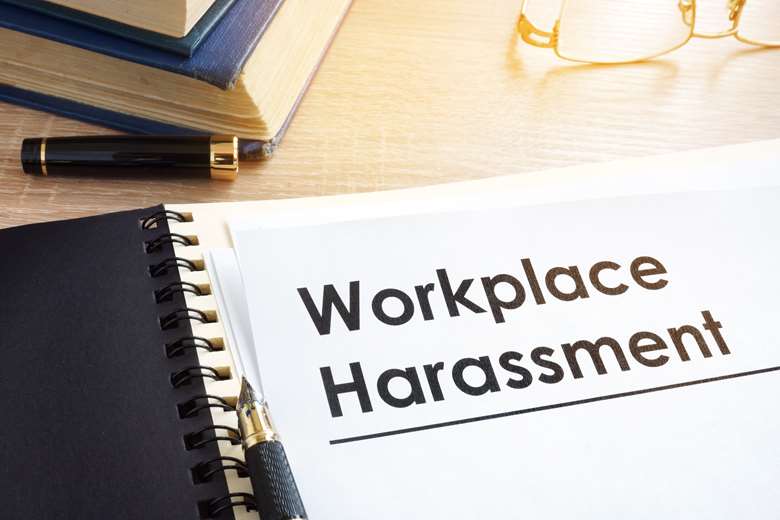Harassment: know your rights
Friday, November 20, 2020
The Incorporated Society of Musicians (ISM) offers advice for dealing with workplace harassment

In your work as a musician there might be occasions where you are subjected to discrimination, harassment or bullying. It is important to recognise how these events present themselves, so you can receive the most appropriate support and take action.
ISM members have access to a free 24-hour legal helpline on any legal issue including matters relating to sexual harassment, bullying and discrimination; and to our specialist in-house legal team, who are there to help you with professional advice and to look after your interests.
What is sexual harassment?
Sexual harassment is unwanted behaviour of a sexual nature (including sexual comments or jokes; physical behaviour, including unwelcome advances, touching and various forms of sexual assault; displaying pictures, photos or drawings of a sexual nature; and sending emails with a sexual content) which violates your dignity, makes you feel intimidated, degraded or humiliated and/or creates a hostile or offensive environment. Most importantly, sexual harassment is unlawful discrimination under the Equality Act 2010 (the Act).
What is bullying and harassment?
Harassment is where someone creates an atmosphere that makes you feel uncomfortable – this could be because you feel offended, intimidated or humiliated. If you’re being bullied, your situation might also be seen as harassment under the Act. If it is, you can take action under this law.
Bullying may be considered harassment if you have been verbally abused; asked very personal questions; had rude physical gestures or facial expressions made towards you; been told jokes of a sexual nature or had comments made to you that you find offensive.
Discrimination under the Act
Discrimination means treating you unfairly because of who you are. The Act protects you from discrimination by employers, businesses, health and care providers, landlords, education providers, among others. Freelance or self-employed musicians are protected under the Equality Act 2010 by the contract to work, which is an agreement between you and an employer that you will do work in exchange for pay. However, it is currently unclear whether this is still the case where work is ‘depped out’ – the ISM is calling for the government to clarify if deputising musicians are covered (see our Dignity at Work campaign for more information: ism.org/dignityatwork).
There are nine protected characteristics in the Equality Act 2010 and discrimination against one or more of these characteristics is unlawful. The protected characteristics are:
- age
- disability
- gender reassignment
- marriage or civil partnership (in employment only)
- pregnancy and maternity
- race
- religion or belief
- sex
- sexual orientation
If you’re treated unfairly because someone thinks you belong to a group of people with protected characteristics, this is also unlawful discrimination.
If you are treated unfairly because your family falls under protected characteristic, this is called discrimination by association and you are protected under the Act. You are also protected if you're treated badly because you've complained about discrimination or stood up for discrimination rights, either for yourself or for someone else.
What do you do if you have been sexually harassed, bullied or discriminated against?
Firstly, make a written note of the incident(s). This can help you identify the exact type of incident you have experienced. Secondly, identify the person you should report your concerns to. If you work for a school, orchestra or other workplace where you are employed, you should check if there are any organisational policies and procedures on how to report. Many workplaces will suggest complaints can be made by writing a grievance letter to the appropriate supervisor or manager, but there might be other ways to deal with such matters: for example, contacting a member of HR with specialist training; seeking assistance from the named 'fair treatment contact’; or contacting a professional body, which for ISM members would be the ISM.
If you are a freelance musician, where you should report your concerns might be unclear. In this case, remember that all ISM members have access to confidential advice from experienced in-house employment lawyers, which you can access by contacting the ISM legal team.
What the ISM is doing to protect its members?
The ISM’s recent research revealed a catalogue of discriminatory behaviour in a broad range of music-based work environments. It was clear that change was needed across the music sector, beginning in education settings up to and including music colleges. Clarity is needed regarding the processes by which musicians can report without fear of retribution or judgement.
As a result of our research, the ISM set out a series of recommendations to the government including:
- Confirmation that section 83(2) of the Equality Act 2010 covers all depping musicians,
- Reintroducing rights around third party harassment,
- Reintroducing the use of discrimination questionnaires.
It was identified that all of the above needed to be underpinned by a sector-wide code. This led to the ISM and the Musicians’ Union launching a code of practice for the music sector in 2018 (ism.org/dignityatwork). The code outlines principles to assist employers in complying with their legal requirements and represents a collective concept for endorsing and sustaining a positive working culture. If you would like to implement the code in your workplace, please get in touch at dignityatwork@ism.org.
Support lines include:
- ISM members can access a free, 24/7 counselling helpline
- Victim Support: victimsupport.org.uk/
- The Samaritans: samaritans.org/
- Equality, Advisory and support service: equalityadvisoryservice.com/app/help
- ACAS: acas.org.uk
- Citizens Advice Bureau: citizensadvice.org.uk/
- The police (if you or someone you know is in immediate danger or if the crime is in progress)
Advice by ISM legal team, ACAS (acas.org.uk) and Citizens Advice Bureau (citizensadvice.org.uk), correct at the time of going to print.
ism.org/dignityatwork